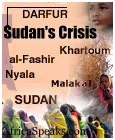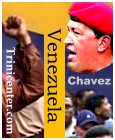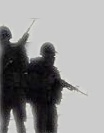 |






 AfricaSpeaks Weblog AfricaSpeaks Weblog
 Rootswomen Weblog Rootswomen Weblog
 Rootsie's Weblog Rootsie's Weblog
|
Times, Networks Shun U.N. Spying Story
Posted: Tuesday, March 11, 2003
March 11, 2003
Fairness & Accuracy In Reporting
With media attention focused intensely on the U.N. Security Council debate over Iraq, the London-based Observer newspaper broke a major story on March 2:
The United States is apparently engaged in a spying campaign against the diplomatic delegations from several Security Council nations. Despite the timeliness and relevance of the Observerís scoop, some major news outlets in the United States have taken a pass on the story.
The Observer reported (3/2/03) that the surveillance plan "involves interception of the home and office telephones and the emails of U.N. delegates in New York." The paper's report is based on a National Security Agency memo that directs the agency to increase its surveillance of Security Council nations in order to monitor their deliberations over Iraq; a "friendly" intelligence service -- evidently Great Britain -- was asked to participate in this operation. The principal targets the surveillance plan is aimed "against" are Angola, Cameroon, Chile, Bulgaria, Guinea and Pakistan -- nations the Observer dubs the "middle six," whose votes are considered crucial to an upcoming Security Council resolution that would authorize the use of military force.
In the wake of the Observer article, reports in the Washington Post and the Los Angeles Times seemed to downplay the importance of the matter. The L.A. Times headlined its March 4 piece "Purported Spy Memo May Add to U.S. Troubles at U.N.," while the subhead read: "'Top secret' document discusses bugging of council members. Forgery or no, some say it's nothing to get worked up about." The lead sentence referred to a "long-standing U.S. practice of spying at the United Nations." The Washington Post's March 4 story, headlined "Spying Report No Shock to U.N.," was similarly unimpressed with the Observerís findings.
The New York Times has yet to even mention the story, now a full week after it first broke. The Times did, however, find a spying story it deemed worth of coverage (3/10/03): the fact that the White House "has asked more than 60 countries to find and expel several hundred Iraqi diplomats that the C.I.A. and others have identified as suspected intelligence agents." The Times put the article on its front page, although it noted that "it is unclear what proof, if any, the United States [government] is providing to back up its claims that the diplomats are in fact Iraqi intelligence agents."
The network news shows have also not aired any reports about the Observer story either, though that's not to say they weren't initially interested:
According to Salon.com (3/4/03), one of the report's authors, Martin Bright, "said that he had agreed to interviews with NBC, CNN, and Fox News Channel-- and that all three had called and canceled." Salon added that the story "has quickly spread throughout the world."
The lack of media interest in the U.S. was partly attributed to the sense that spying on diplomats is not noteworthy. The prominent reporting of this story in the rest of the world, as well as follow-up reporting by the Observer, might suggest otherwise: The paper reported on March 9 that the U.N. is conducting a "top-level investigation" of the matter, while Chilean president Ricardo Lagos is demanding an explanation from British prime minister Tony Blair. The Observer also reported that an employee at Britain's Government Communications Headquarters was arrested "on suspicion of contravening the Official Secrets Act" in connection with the leaked document.
Why is a story that is having such wide impact around the world being nearly ignored by the U.S. press? With a pending U.N. vote on military force perhaps just days away, it would seem newsworthy that the United States is, in the words of the NSA memo, "mounting a surge" in order to obtain "the whole gamut of information that could give U.S. policymakers an edge in obtaining results favorable to U.S. goals or to head off surprises." For some reason, though, major American media outlets have taken a pass.
ACTION: Please contact the networks and the New York Times and ask them if they plan to cover the reports of U.S. surveillance of U.N. diplomats.
CONTACT:
New York Times
mailto:nytnews@nytimes.com
Toll free comment line: 1-888-NYT-NEWS
 Printer friendly version Printer friendly version
 Send page by E-Mail Send page by E-Mail
|








